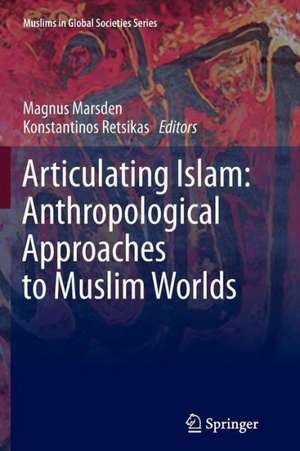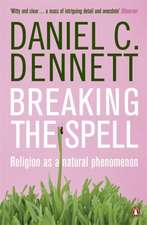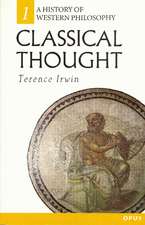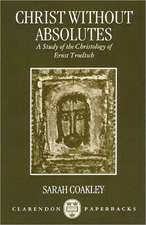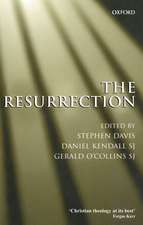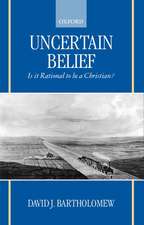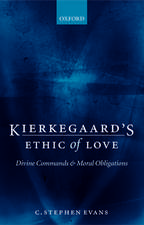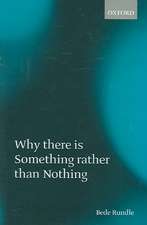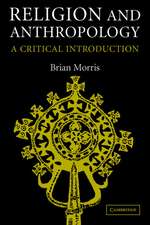Articulating Islam: Anthropological Approaches to Muslim Worlds: Muslims in Global Societies Series, cartea 6
Editat de Magnus Marsden, Konstantinos Retsikasen Limba Engleză Paperback – 14 dec 2014
| Toate formatele și edițiile | Preț | Express |
|---|---|---|
| Paperback (1) | 626.48 lei 6-8 săpt. | |
| SPRINGER NETHERLANDS – 14 dec 2014 | 626.48 lei 6-8 săpt. | |
| Hardback (1) | 632.55 lei 6-8 săpt. | |
| SPRINGER NETHERLANDS – 6 noi 2012 | 632.55 lei 6-8 săpt. |
Preț: 626.48 lei
Preț vechi: 737.04 lei
-15% Nou
Puncte Express: 940
Preț estimativ în valută:
119.90€ • 124.54$ • 99.59£
119.90€ • 124.54$ • 99.59£
Carte tipărită la comandă
Livrare economică 03-17 februarie 25
Preluare comenzi: 021 569.72.76
Specificații
ISBN-13: 9789400795976
ISBN-10: 9400795971
Pagini: 276
Ilustrații: VIII, 268 p.
Dimensiuni: 155 x 235 x 14 mm
Greutate: 0.39 kg
Ediția:2013
Editura: SPRINGER NETHERLANDS
Colecția Springer
Seria Muslims in Global Societies Series
Locul publicării:Dordrecht, Netherlands
ISBN-10: 9400795971
Pagini: 276
Ilustrații: VIII, 268 p.
Dimensiuni: 155 x 235 x 14 mm
Greutate: 0.39 kg
Ediția:2013
Editura: SPRINGER NETHERLANDS
Colecția Springer
Seria Muslims in Global Societies Series
Locul publicării:Dordrecht, Netherlands
Public țintă
ResearchCuprins
Introduction.- Magnus Marsden & Konstantinos Retsikas.- Shurafâ as cosmopolitans: Islam, genealogy and hierarchy in the Central Sahara Judith Scheele.- Death and the spirit of patriarchy in western India Edward Simpson.- . On the skills to navigate the world, and religion, for coastal Muslims in Kenya Kai Kresse.- Beyond Islam: tradition and the intelligibility of experience Johan Rasanayagam.- Becoming sacred: humanity and divinity in East Java, Indonesia Konstantinos Retsikas.- Self-similarity and its perils Gabriele vom Bruck.- The universal and the particular in rural Xinjiang: ritual commensality and the mosque community Chris Hann.- Apolitical "Islamisation"? On the limits of religiosity in montane Morocco Matthew Carey.- Integrity and commitment in the anthropology of Islam Morgan Clarke.- Fieldwork in Pakistan and Afghanistan compared Magnus Marsden.- 11.Afterword: De-exceptionalising Islam Simon Coleman.
Recenzii
From the reviews:
“The papers are written in the frame of the debate about what constitutes an anthropology of Islam, and appropriately, respond with and from ethnographic work. … With its range of geographical contexts and authorial perspectives, it is a valuable contribution to thinking within the anthropology of Islam. … it raises issues that will help our understanding of other religions and of humanity.” (Moyra Dale, Aseasuk News, Issue 54, 2013)
“The papers are written in the frame of the debate about what constitutes an anthropology of Islam, and appropriately, respond with and from ethnographic work. … With its range of geographical contexts and authorial perspectives, it is a valuable contribution to thinking within the anthropology of Islam. … it raises issues that will help our understanding of other religions and of humanity.” (Moyra Dale, Aseasuk News, Issue 54, 2013)
Notă biografică
Magnus Marsden is Senior Lecturer in Social Anthropology at the School of Oriental and African Studies. He was previously a Research Fellow at Trinity College, Cambridge and Graduate Officer in Research at the Centre of South Asian Studies, University of Cambridge (2002-2007). He has conducted ethnographic fieldwork in Pakistan, Afghanistan, and Tajikistan, and is the author of Living Islam: Muslim Religious Experience in Pakistan’s North-West Frontier Province (Cambridge, 2005), and with Benjamin Hopkins Fragments of the Afghan Frontier (Hurst, 2011). Konstantinos Retsikas is a lecturer in the Anthropology of South East Asia at the School of Oriental and African Studies. He has conducted fieldwork in East Java, Indonesia and his publications include articles in the Journal of the Royal Anthropological Institute, Indonesia and the Malay World, and South East Asia Research.
Textul de pe ultima copertă
This collection of arresting and innovative chapters applies the techniques of anthropology in analyzing the role played by Islam in the social lives of the world’s Muslims. The volume begins with an introduction that sets out a powerful case for a fresh approach to this kind of research, exhorting anthropologists to pause and reflect on when Islam is, and is not, a central feature of their informants’ life-worlds and identities. The chapters that follow are written by scholars with long-term, specialist research experience in Muslim societies ranging from Kenya to Pakistan and from Yemen to China: thus they explore and compare Islam’s social significance in a variety of settings that are not confined to the Middle East or South Asia alone. The authors assess how helpful current anthropological research is in shedding light on Islam’s relationship to contemporary societies. Collectively, the contributors deploy both theoretical and ethnographic analysis of key developments in the anthropology of Islam over the last 30 years, even as they extrapolate their findings to address wider debates over the anthropology of world religions more generally. Crucially, they also tackle the thorny question of how, in the current political context, anthropologists might continue conducting sensitive and nuanced work with Muslim communities. Finally, an afterword by a scholar of Christianity explores the conceptual parallels between the book’s key themes and the anthropology of world religions in a broader context. This volume has key contemporary relevance: for example, its conclusions on the fluidity of people’s relations with Islam will provide an important counterpoint to many commonly held assumptions about the incontestability of Islam in the public sphere.
Caracteristici
A critical and lucid introduction to key developments in the anthropology of Islam which provides a new theoretical framework Includes carefully chosen comparative case studies from across the Muslim world Chapters reflect on key methodological dilemmas for anthropologists conducting fieldwork on Islam and relate these to wider theory Actively addresses scholarships about world religions in related disciplines and includes a chapter written by a leading anthropologist of Christianity
